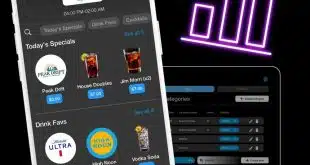CardFree, a mobile-wallet startup founded by payments-industry veterans with experience in mobile-payments apps, says its first merchant partner is Sonic Drive-In, a quick-serve restaurant chain with more than 3,500 locations.
CardFree features a geo-location app to identify the consumer’s proximity to the merchant for marketing purposes. The company, which is targeting casual and fast-food restaurants, uses one-time authentication codes to protect transactions and customer data. The CardFree app is white-labeled with the merchant’s branding, says Jon Squire, CardFree chief executive. San Francisco-based CardFree debuted about 10 months ago.
Exactly which features of the wallet—payment, loyalty, ordering, messaging, and social-media integration—will be included in the Sonic service is unknown. Neither CardFree nor Sonic will disclose the features.
CardFree says Sonic will test the mobile commerce service at an undisclosed number of locations this fall, and anticipates making it available throughout its chain in 2014. A Sonic spokesman would not comment beyond that.
The payment component of CardFree can connect with most third-party payment companies, Squire says. As for a tender type, CardFree leaves that decision to the merchant, with many selecting a stored-value or prepaid card, Squire says. CardFree apps can use open-loop cards, he notes. “It was really important for us to create as little friction as possible for merchants,” Squire says.
CardFree also leaves it up to the merchant to choose which payment technology it wants to use, such as asking consumers to scan a quick-response (QR) barcode or other existing technology. “We’re agnostic to that,” Squire says.
CardFree expects to make other merchant announcements later this year, including one with a specialty retailer and a convenience-store merchant that also sells general merchandise.
When the Sonic mobile-commerce service launches, it will be available to approximately 3 million consumers each day, CardFree says. By the end of 2013, CardFree’s apps could be available to about 57 million consumers a week, assuming its merchant-launch timetable remains in place.
Squire’s experience includes being part of the team that helped develop the Starbucks mobile app. H also led mobile efforts at Dunkin’ Donuts.
That experience will aid CardFree, says Todd Ablowitz, president of payments consulting firm Double Diamond Group. “CardFree has a smart team that has proven its capability in more than one venue,” Ablowitz says.
Many merchants look at the Starbucks mobile app as a success, says Rick Oglesby, analyst at consulting firm Aite Group LLC, and would like to have something similar. Offering a mobile payment app can provide many benefits, he says. One is that when consumers pay by phone the retailer gains contact and identity information. “The retailer can build an ongoing relationship with customers that they can’t do with anonymous customers,” Oglesby says.
Merchants also may be able to save on payment processing fees. If a consumer loads $25 to spend in $5 increments onto a prepaid card in the app, the merchant only pays the discount rate once, he says, compared to instances where a consumer makes five separate transactions requiring a processing fee each time.
This has been a busy week for mobile-payments startups, particularly at fast-food chains. The CardFree-Sonic tieup was quickly followed by an announcement from rival mobile-payments developer Paydiant Inc., Wellesley, Mass., that its app has been selected by the massive Subway chain of sandwich stores. Deployment is expected to start later this year.




